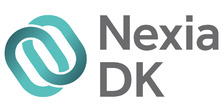Opportunities open up after free trade deal agreed between EU and Mercosur countries
The EU and Mercosur economic bloc that includes Brazil, Argentina, Uruguay and Paraguay, have agreed to form the world's largest free trade zone.
Mercosur companies, until now have been operating in fairly closed and protectionist home markets, they need to prepare to meet the challenges this will bring in the future.
After 20 years of negotiation, the EU and Mercosur announced on 28 June 2019 that they had reached an agreement on a free trade zone that will contain 780 million consumers and generate 25% of global economic output.
Key elements
The agreement covers almost all agricultural products, industrial goods and services. Under the agreement more than 82% of agricultural products can be traded without any tariffs. For the remaining 18%, including beef, poultry and pork exports to the EU, quotas will be put in place.
Tariffs and trade restrictions for industrial goods will be reduced, although different time schedules apply to the EU and Mercosur.
The EU will ultimately remove tariffs for all industrial goods, 80% of them as soon as the agreement is ratified in 2021/22. Mercosur countries will make 90% of industrial goods tariff-free over a period of 15 years. Service companies can participate in government purchase and public service tenders.
Mercosur productivity boost?
Economic experts think the agreement will lead to a much-needed productivity boost for Mercosur companies, especially in Brazil and Argentina. Brazil has one of the most protectionist markets in the world, with import duties of up to 35% for cars, clothes and shoes and up to 20% for machinery. The agreement should see increased interdependence between industrial supply chains on both sides of the Atlantic.
Mercosur companies will need to be prepared to begin or increase productivity improvements across all areas of their business. Given that Mercosur markets have been fairly closed to outside competition, this is a significant challenge for companies in the region. Not all will be able to survive the upcoming opening up of the market.
Agribusiness must understand future customers
Mercosur agribusinesses are seen as clear winners. Some have characterized the agreement as a ‘car for cows’ deal, but a favourable agreement with the EU doesn’t automatically translate into market success. European consumers and powerful supermarket groups will ultimately decide which food products end up on European shelves. Those decisions directly impact livestock feed, a major Mercosur product.
Proper traceability, food safety, use of pesticides and antibiotics, good livestock practices and fast-growing demand for vegetarian food are among the significantly different challenges that Mercosur agribusinesses will face in European markets, compared to those they face in other large export markets such as China or the Middle East.
What’s next?
Working out the fine details of the agreement could take well into 2020, with a further two years for ratification and implementation beginning in 2022. In the meantime, both Mercosur and EU companies need to get ready for open markets in South America.
For more information, contact:
PP&C Auditores Independentes, Brazil
T: +55 11 3883-1600
Paul Carvalho/RainerKollgen
E: pj.carvalho@ppc.com.br/r.kollgen@ppc.com.br
W: www.ppc.com.br


